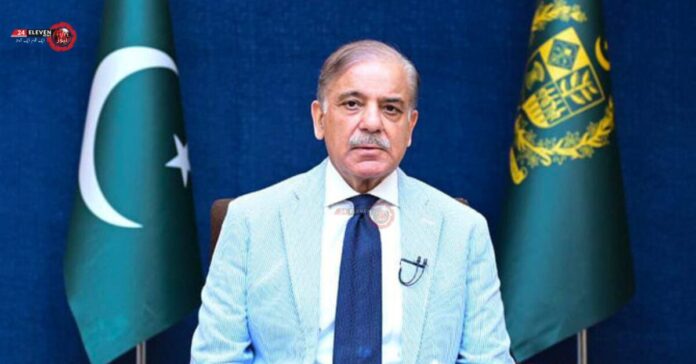Prime Minister Shehbaz Sharif’s inaugural address to the newly formed federal cabinet resonates with determination as he vows to liberate Pakistan from the perpetual cycle of IMF bailouts. With economic woes looming large, including the formidable challenges of mounting circular debt and inflation, Sharif presents a vision of self-reliance and resilience.
Asserting his commitment to break free from IMF dependency, Sharif declares, “We will get rid of IMF, InshaAllah.” This proclamation comes at a pivotal moment, as talks loom with the IMF regarding the second review of the $3 billion Stand-by Arrangement program. Concurrently, Pakistan is poised to negotiate a fresh deal under the 36-month Extended Fund Facility.
A strategic shift is evident in Sharif’s approach as he emphasizes seeking investments over loans from foreign states. Addressing ambassadors, he underscores the imperative to combat poverty through sustainable economic partnerships rather than reliance on debt.
Central to Sharif’s agenda is the recalibration of subsidies, challenging the status quo where elites benefit at the expense of the impoverished masses. With circular debt in the gas and electricity sectors soaring to Rs5 trillion, Sharif attributes the crisis to imported fuels and other contributing factors. He advocates for redirecting subsidies away from the elite towards measures that alleviate inflationary pressures on the common citizen.
In a bold move, Sharif calls for the inclusion of wholesalers in the tax net, redirecting the burden from struggling retailers. He acknowledges the pervasive impact of inflation on the populace and pledges to prioritize its reduction as a paramount objective of his administration.
Furthermore, Sharif denounces the concentration of resources in the hands of a select few, challenging the rationale behind subsidizing the elite. With unwavering resolve, he encapsulates his mandate in the mantra: “Perform or perish.” This rallying cry underscores the urgency of the moment, signaling a paradigm shift towards accountability and performance-driven governance.
In conclusion, Prime Minister Shehbaz Sharif’s bold economic agenda heralds a new era of determination and resolve in Pakistan’s quest for economic stability and prosperity. Through a multifaceted approach encompassing debt reduction, subsidy reform, and targeted interventions, Sharif seeks to usher in a future defined by self-reliance and equitable growth.


